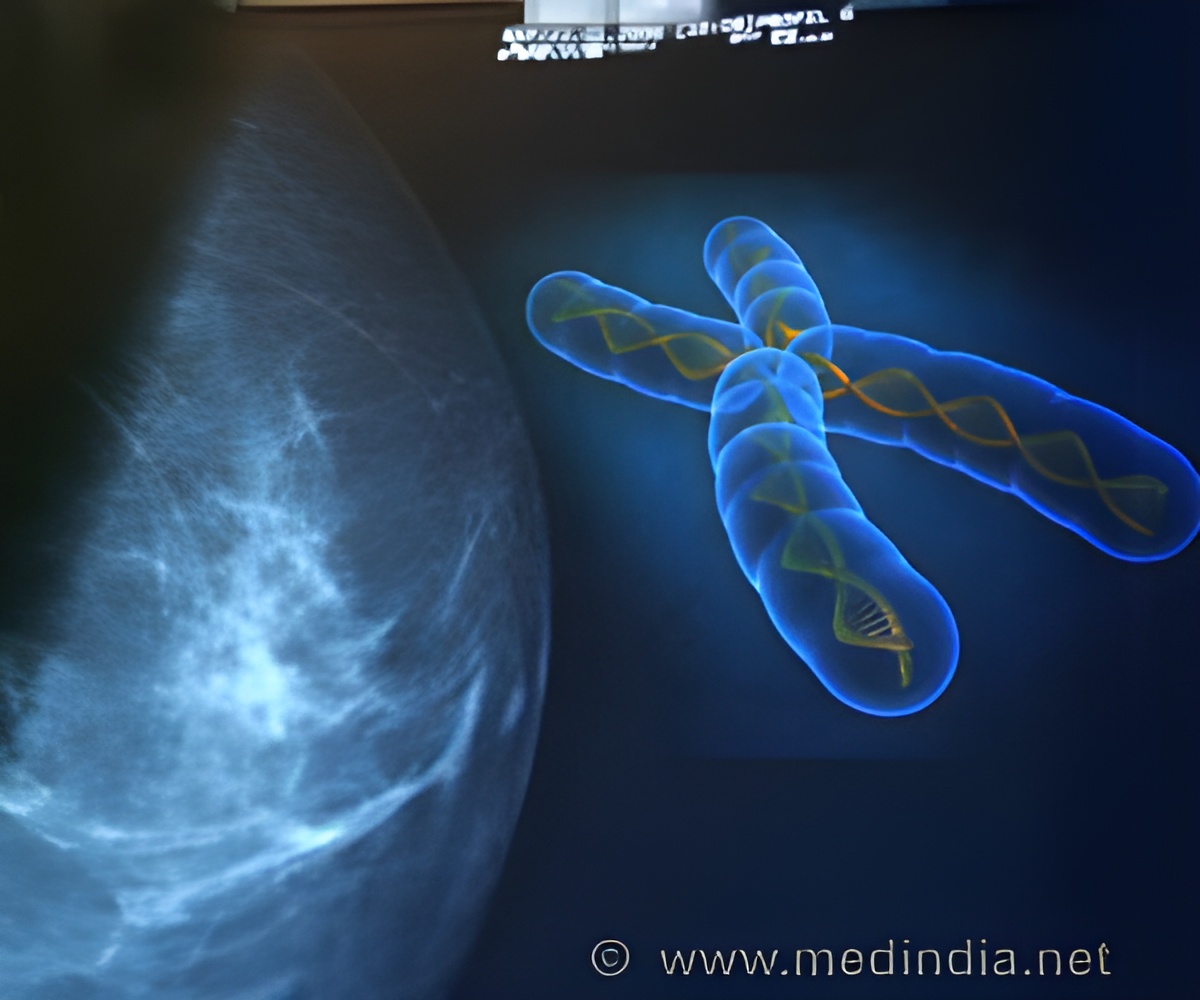The age-specific overall risk of breast and ovarian cancer in women has been estimated, finds a new study.

These can be used to estimate the absolute risk reduction from preventive strategies and to inform decisions about the age at which to begin cancer screening. Antonis C. Antoniou, Ph.D., of the University of Cambridge, England, and colleagues included 6,036 BRCA1 and 3,820 BRCA2 female carriers (5,046 unaffected and 4,810 with breast or ovarian cancer or both at study entry) in the analysis.
During a median follow-up of 5 years, 426 women were diagnosed with breast cancer, 109 with ovarian cancer, and 245 with contralateral breast cancer (cancer in the breast opposite to one previously diagnosed with cancer). Among the findings of the researchers:
- The cumulative breast cancer risk to age 80 years was 72 percent for BRCA1 and 69 percent for BRCA2 carriers.
- Breast cancer incidences increased rapidly in early adulthood until ages 30 to 40 years for BRCA1 and until ages 40 to 50 years for BRCA2 carriers, then remained at a similar, constant incidence until age 80 years.
- The cumulative ovarian cancer risk to age 80 years was 44 percent for BRCA1 and 17 percent for BRCA2 carriers.
- For contralateral breast cancer, the cumulative risk 20 years after breast cancer diagnosis was 40 percent for BRCA1 and 26 percent for BRCA2 carriers.
- Breast cancer risk increased with increasing number of first- and second-degree relatives diagnosed as having breast cancer for both BRCA1 and BRCA2 carriers.
- Cancer risk varied by mutation location within the BRCAl or BRCA2 gene.
"The results indicate that family history is a strong risk factor for mutation carriers and that cancer risks vary by mutation location, suggesting that individualized counseling should incorporate both family history profiles and mutation location," the authors write.
Advertisement















